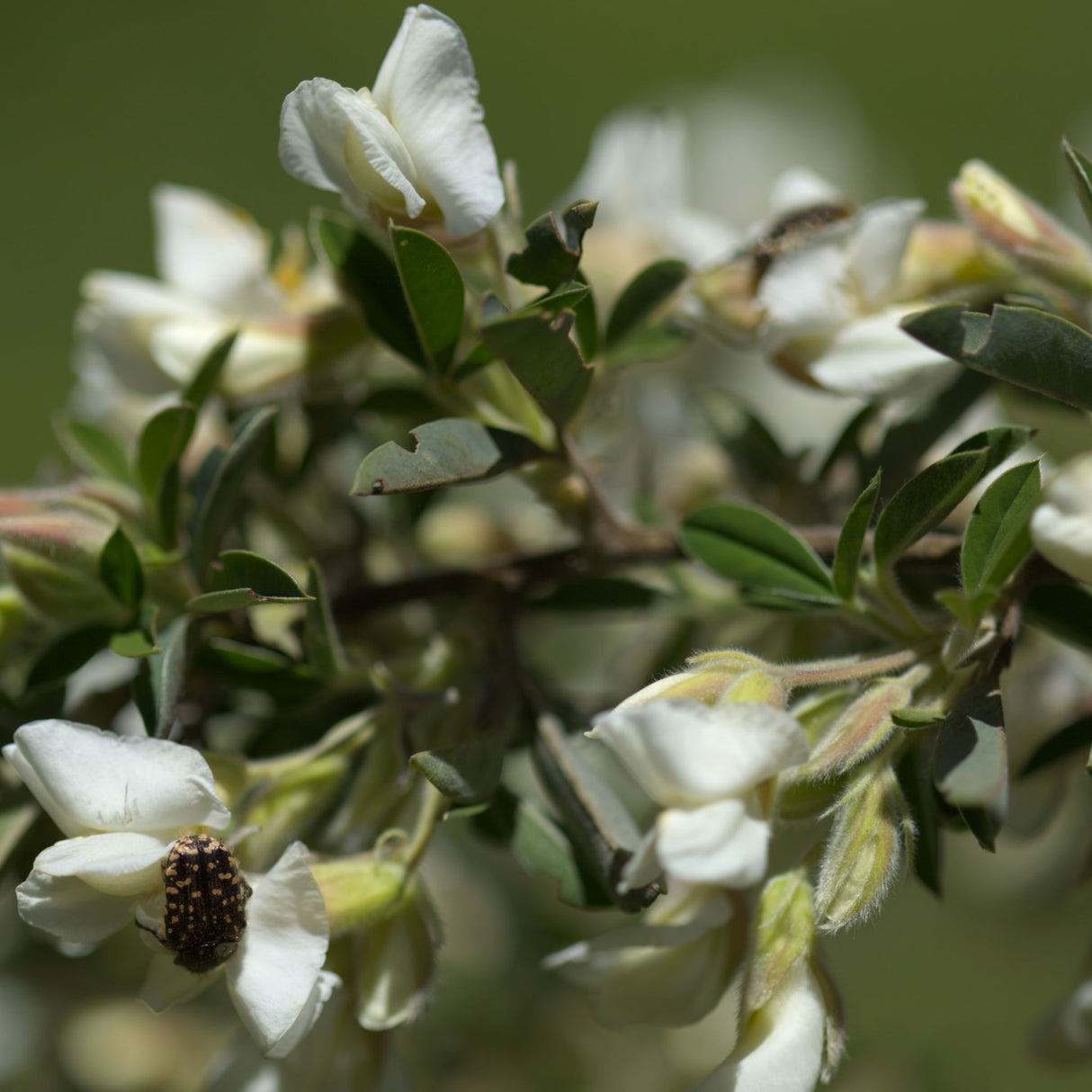Tree Lucerne / Tagasaste
| Minimum Cart Quantity | Wholesale Price |
|---|
| Minimum Cart Amount | Cart Discount |
|---|
Tree Lucerne / Tagasaste is backordered and will ship as soon as it is back in stock.
Tagasaste is a small shrubby legume tree to 5m with greyish-green leaves and fragrant white flowers. It is native to the Canary Islands and requires a Mediterranean climate. It can survive cold winters down to -9°C. It is an excellent animal fodder with a crude protein content of 20-24%; all grazing animals, pigs and poultry readily eat the leaves; excellent nectar source for bees; useful as a windbreak and fuelwood.
Product: Tree Lucerne / Tagasaste
Product type: SEED (40)
Botanical name: Chamaecytisus proliferus
Tagasaste is a small shrubby legume tree to 5m with greyish-green leaves and fragrant white flowers. It is native to the Canary Islands and requires a Mediterranean climate. It can survive cold winters down to -9°C. It is an excellent animal fodder with a crude protein content of 20-24%; all grazing animals, pigs and poultry readily eat the leaves; excellent nectar source for bees; useful as a windbreak and fuelwood.
Sow when: Germinate best 20 - 24°C soil temp.
Temperate: Spring: unsuitable for subtropical & tropical areas
Germination: 7 - 14 days
Treatment: Place seed in hot water, soak for 24 hours to swell
Planting: Add inoculant to swollen, moistened seeds, then sow into tree tubes
Depth: Sow 2 cm deep into a free-draining mix; transplant when 8-10 cm high to reduce damage to the taproot
Position: Full sun; 2 - 4 m apart; prefers sandy soils & a pH of 5.5 - 6.5; intolerant of waterlogging
Details: Protect young trees from all grazing animals


